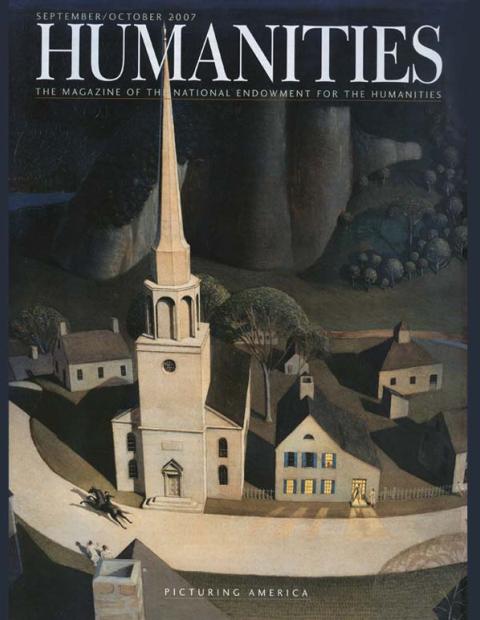What do violence in Somalia, hot rod cars, and the Monacan Indian tribe have in common? Give up? They’re all included in programs sponsored by the Virginia Foundation for the Humanities, which since 1974 has swelled from a nascent organization of six volunteers to its current status as one of the largest of the state humanities councils with a multimillion dollar budget and a staff of thirty. The foundation’s growth and the broad scope of its programs are thanks in no small part to its founding president, Robert Vaughan, who took the helm as a twenty-eight-year-old English professor and who will celebrate his thirty-fourth anniversary with the foundation in September.
“I didn't intend to stay,” laughs Vaughan, now sixty-two and a silver-haired grandfather. “But this place has given me the opportunity to do all kinds of things that I wanted to do.”
A short list of those things: launching the Virginia Festival of the Book in 1995, offering grants and fellowships to scholars and artisans, helping regional folk musicians record their works for the first time, and seeking ways to cope with violence in culture and society.
Helping victims recover from violence, says Vaughan, means crossing not only state but also national borders through one of the foundation's efforts, the Center on Violence and Community.
Representatives from the foundation have hosted scholars and diplomats from war-torn nations, including Bosnia and Somalia. They shared personal experiences and discussed topics including recovery and reconciliation. “We had seven countries and nine primary languages in the room,” Vaughan recalls. As the Guatemalans shared their stories of survival, Vaughan says, there was an “aha” moment. “The experience was the same in the Congo or Cambodia,” he says. “Everybody got it.”
Fortunately, violence is not the only thing that ties Virginia to the global community. While staffers and scholars from the foundation's Virginia Folklife Program continue to document longstanding folk traditions, including bluegrass music and, yes, hot rod cars, there are fresh challenges. From densely populated Northern Virginia to the most rural southwestern Virginia counties, immigrants from around the globe are moving in and bringing their native folk traditions with them. These too are being recorded.
Vaughan recalls a recent lunch at which twelve visiting musicians from the Altai Republic, a tiny nation bordering Mongolia and Kazakhstan, performed “throat singing,” a feat in which vocalists emit more than one note at once. It's something Vaughan says he at first doubted was possible.
“When they demonstrated it, I realized it can be done,” he says. So did he try it?
“Yeah,” he admits with a sheepish grin. “I have not mastered it.”
If the sky's the limit when it comes to the programs he oversees, much of Vaughan's job involves decidedly more earthbound administrative and fundraising tasks. Even for a man self-described as “entrepreneurial,” finding money year after year to allow the foundation's continued growth can be stressful. Next year, says Vaughan, the operating budget will be $4.4 million, much of which must be raised through private donations.
“I wake up at 3:45 in the morning thinking, 'How am I going to pay thirty people this year?'” he says. Deciding which fellowships and grants to issue is tough as well. “It's hard to prioritize and say 'this' is more important than something else.”
Still, any headaches over finances haven't dampened Vaughan's passion for the results he sees. He points to stacks of books atop his desk and on the floor surrounding it, all works by scholars the foundation has supported.
One in particular—a slim work on the Virginia Indian Heritage Trail authored by a member of the Monacan Tribe—catches his eye, and he lights up once more, recalling meeting with the chiefs of eight Virginia tribes to discuss ways the foundation might help celebrate their customs and history. He lifts several other books, one on the oral histories of African Americans recorded by foundation staffers around the state.
“I try to at least skim every one of them,” he says of the books. It's only possible because his workday doesn't end when he heads home.
“I suppose I'm one of these people whose professional life and personal life is always blending in some way," he says. "I'm sometimes criticized for trying to do too much, but I'm afraid that's not going to change.”

